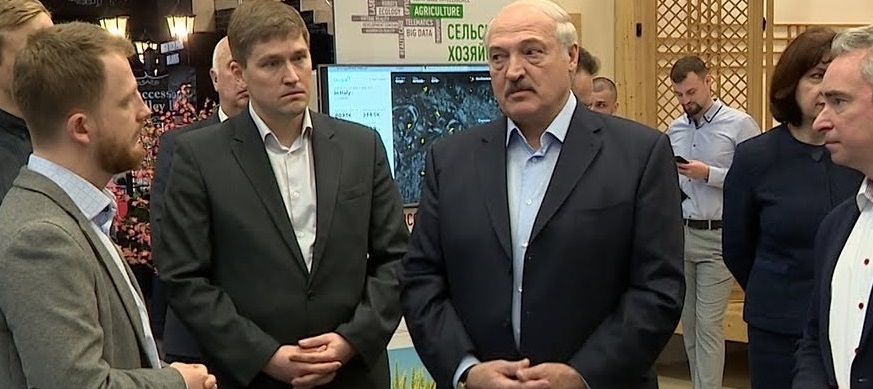The president pays a visit to the High Technology Park; law enforcers step up persecution of activists in Brest and raid BelSAT headquarters in Minsk
 The situation has not changed
The situation has not changed

Law enforcers have stepped up pressure on activists protesting the battery factory construction in Brest and launched a criminal investigation against BelSAT journalists. Meanwhile, there is no unity in the power echelons regarding a possible local referendum on hazardous productions. After visiting economically backward regions and industries, the president paid a visit to the High-Tech Park (HTP), a successful project intended to showcase state policy achievements to voters.
Before the usual Sunday protest against the battery factory construction in Brest, 11 activists were summoned as witnesses to the Brest Regional Police Department, where they were put in pretrial detention on charges of violating the procedure for organizing or holding public events for participating in a protest against the construction on April 7th.
The Brest city court has dismissed the complaint about the authorities’ refusal to register an initiative group for holding a local referendum. Meanwhile, there is no unity among the authorities regarding the holding of a local referendum. For example, former Constitutional Court head and former Prosecutor General now heading a Belarusian State University department Grigory Vasilevich spoke in favour of local referendums, which local authorities seem to be afraid of.
In Minsk, the Investigative Committee has returned all computers and storage equipment seized the day before during a search at the BelSAT headquarters. However, the criminal investigation within a ‘slander’ case, based on a news report about the alleged corruption in the Health Ministry is still ongoing and is likely to be used as a pressure tool to encourage self-censorship in media organisations when reporting about the Belarusian leadership before the elections.
The president visited last week the High-Tech Park, where he discussed the outcomes of 2018 with its residents. Unlike other state industrial modernization projects, the HTP is a success, which is primarily due to the lack of overt government intervention in its operations and progressive legislation adopted in 2018. IT specialists are likely to continue to lobby their interests and extend their influence in the power echelons. For instance, there is a plan to institute a new ministry of digital transformation of the economy, which would supervise the National Academy of Sciences, the State Committee for Science and Technology, the Ministry of Transport and Communications, and would oversee digital transformation in other industries. The IT sector may prompt the authorities to adopt progressive approaches in housing utilities, medicine, education and other spheres.
In addition, the president has criticized the proposals made by the Education Minister, regarding the introduction of tighter access control at schools and restrictions on the use of mobile phones. Apparently, in such a manner the president has responded to parents’ discontent with the proposals and additional budget expenditures they may entail.
As the elections draw closer, the president would be prompted to respond to unpopular government decisions more frequently.
Subscribe to our newsletter




Situation in Belarus
Constitutional referendum: main consequences


 Video
Video
How to count the political prisoners: are the new criteria needed?


 Video
Video
Paternalism In Decline, Belarusian Euroscepticism, And The Influence Of Russia


 Video
Video












